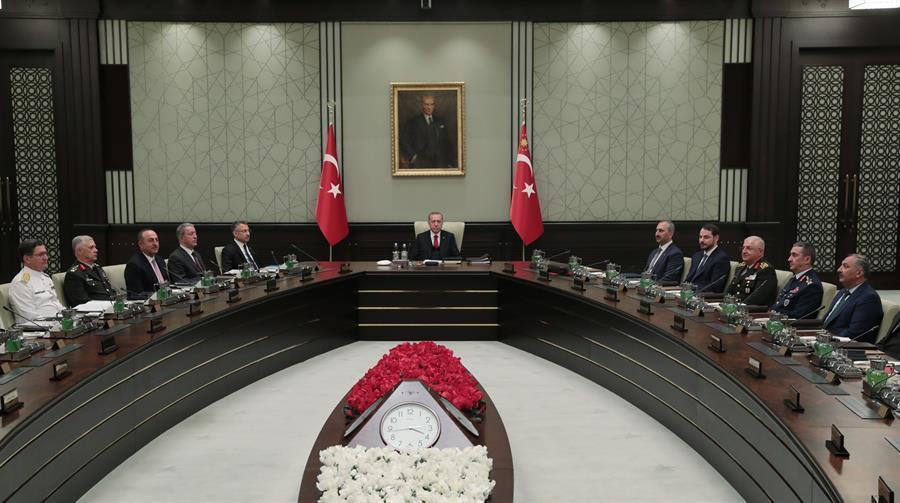
Turkey will further strengthen its efforts to create a safe zone in northern Syria, said the country's National Security Council on Sept. 30.
“Turkey will further strengthen its sincere efforts to realize the safe zone project,” the council, chaired by Turkish President Recep Tayyip Erdoğan, said in a statement following the meeting at the presidential complex in Ankara.
It stressed that Turkey considers it as a humanitarian issue and the project will let Syrians' safe return to their homes.
On Aug. 7, Turkish and U.S. military officials agreed to set up a safe zone in northern Syria and develop a peace corridor to facilitate the movement of displaced Syrians who want to return home. They also agreed to establish a joint operations center.
The agreement also envisaged setting up necessary security measures to address Turkey's security concerns, including clearing the zone of the terrorist YPG/PKK, a group the U.S. has sometimes been allied with.
The council also confirmed that anti-terror Claw operations launched in northern Iraq will continue until the region is cleared of the terrorists for the safety of both countries.
On May 27, Ankara launched Operation Claw against the PKK terror group in the Hakurk region of northern Iraq, followed by the operation's second and third phases in July and late August.
In its more than 30-year terror campaign against Turkey, the PKK -- listed as a terrorist organization by Turkey, the U.S., and the EU -- has been responsible for the deaths of over 40,000 people, including women, children, and infants.
The council stated that Turkey is determined to continue activities in Eastern Mediterranean within the framework of its continental shelf -- which is registered with the United Nations -- and agreements with Turkish Republic of Northern Cyprus (TRNC).
Turkey has consistently contested the Greek Cypriot administration's unilateral drilling in the Eastern Mediterranean, asserting that the TRNC also has similar rights to the resources in the area.
From spring onwards when Ankara sent two drilling vessels -- the Fatih and the Yavuz -- to the Eastern Mediterranean, exploration and research work has continued in defense of the rights of Turkey and the TRNC to the resources in the region.